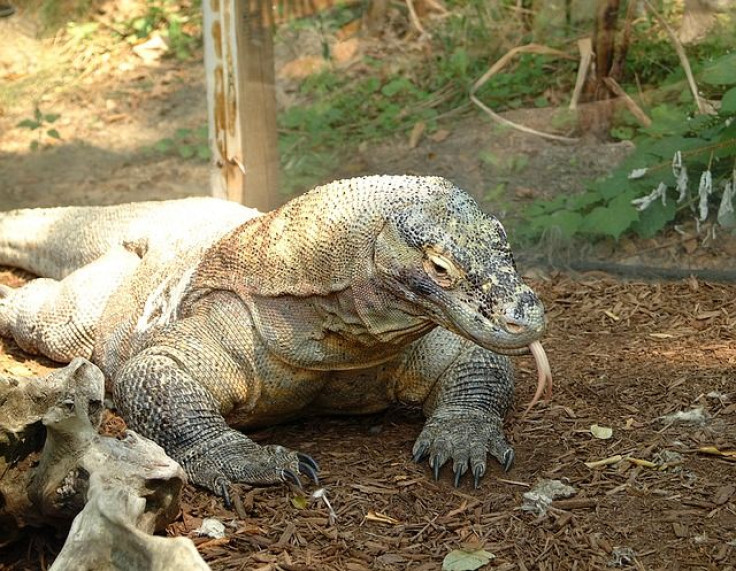Can Dragon Blood Kill Superbugs? The New Weapon Against Antibiotic-Resistant Bacteria Is Blood From Komodo Dragons

Antibiotic resistance has been named one of the biggest threats to global health, and researchers around the globe are racing to develop new treatments to battle these ever-evolving superbugs. The newest, and perhaps most surprising, of these developments involve the blood of the Indonesian Komodo dragon. Scientists hope to harvest the natural immunity of these ancient creatures and use it to help us fight against drug-resistant bacteria.
A new study published online in the Journal of Proteome Research , explains how scientists have replicated chemical compounds called cationic antimicrobial peptides (CAMPS), found in the blood of the Komodo dragon, in the hopes of developing new antibiotics. Although it will be some time before theses dragon CAMPs are used in human trials, in a lab setting the synthetic CAMPS were able to completely destroy two lab-grown superbugs, IFL Science reported.
Read: Superbug Cure? Red Berries From Brazilian Peppertree Neutralize Antibiotic-Resistant MRSA Bacteria
“Komodo dragon serum has been demonstrated to have in vitro antibacterial properties,” the researchers explained, IFL Science reported. “The role that CAMPs play in the innate immunity of the Komodo dragon is potentially very informative, and the newly identified Komodo dragon CAMPs may lend themselves to the development of new antimicrobial therapeutics.”
Komodo dragons are not the only ones with CAMPs, in their bloodstream, IFL Science report. In fact, humans have their own CAMPs that also work to keep us safe from invading bacteria. However, not only do Komodo dragons have more of these CAMPs, theirs are also more effective, with 47 of their 48 CAMPS having antimicrobial abilities.
The need to find a solution for antibiotic resistance has never been greater, as the World Health Organization report that, at this rate, superbugs will kill 10 million people a year by the year 2010.
Another recent breakthrough in the fight against antibiotic resistance involved using berries from the Brazilian Peppernut Tree. Although far less fearsome than dragon blood, these berries are no less powerful. Although used as a traditional healing plant in the Amazon for hundreds if not thousands of years, when researchers isolated the certain chemical inside of this invasive plant, they found that they plant may also have use in modern medicine.
Source: Bishop BM, Juba ML, Russo PS, Devine M, et al. Discovery of Novel Antimicrobial Peptides from Varanus komodoensis (Komodo Dragon) by Large-Scale Analyses and De-Novo-Assisted Sequencing Using Electron-Transfer Dissociation Mass Spectrometry. Journal of Proteome . 2017
See Also:
New Study Finds That Modifying Antibiotics Could Help Destroy Treatment-Resistant Bacteria
Scientists Discover How Superbugs Build Defenses, Paving Way For New Drugs



























